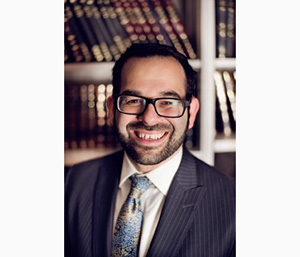
When I was younger, doctors were just starting to understand the horrible health effects smoking can have on people. This information led to higher taxes, warning labels on cigarette packages and age restrictions on purchasing cigarettes. Through additional studies we learned that smoking is dangerous for anyone who inhales smoke, and this was not only in relation to the smoker but also the people in close proximity to the smoker, creating the term “secondhand smoke.” As a result many states have declared it illegal to smoke in public places, closed areas, and even some open area places like public parks. It has become illegal to smoke indoors because sharing smoke is dangerous to anyone in the vicinity. According to the surgeon general, “Secondhand smoke is the combination of smoke from the burning end of the cigarette and the smoke breathed out by smokers. When you breathe secondhand smoke, it is like you are smoking.”
I was reminded of this connection when I recently read an article from fastcompany.com written by Jessica Hullinger. The article was reviewing “The No Complaining Rule” written by Jon Gordon. In an interview, Mr. Gordon shared a shocking study:
“When we complain, our brains release stress hormones that harm neural connections in areas used for problem solving and other cognitive functions. This also happens when we listen to someone else moan and groan. “It’s as bad as secondhand smoke,” Gordon says. “It’s secondhand complaining.”
The articles explains that many offices have taken these studies and implemented a no complaining rule in their office space.
וַיְהִי הָעָם כְּמִתְאֹנְנִים, רַע בְּאָזְנֵי ה’; וַיִּשְׁמַע ה’, וַיִּחַר אַפּוֹ, וַתִּבְעַר-בָּם אֵשׁ ה’, וַתֹּאכַל בִּקְצֵה הַמַּחֲנֶה
“The people were like complainers (mitonenim) in God’s ears; and God heard, and His anger was incensed; and God’s fire burned against them, and it devoured the edge of the camp.” Bamidbar (11:1)
These mitonenim set off a series of complaints directed at Moshe and Hashem. “We miss Egypt, we had so many delicacies there, the cucumbers, the leeks, the watermelons, we are now in the desert, our mouths are parched, and all we have is mann.” Moshe reacts to these complaints strongly and expeditiously.
The commentators struggle with the mitonenim. What are they complaining about? What makes them evil? After experiencing Kriat Yam Suf, the splitting of the sea, the Jewish people also complained, albeit with a different reaction; what was different?
Rav Moshe Ben Nachman (Ramban) explains that the word “mitonenim” is an expression of feeling pain and feeling sorry for oneself based on a pasuk in Eicha (3:39): “For what shall a living person mitonen (complain)?”
Rav Samson Raphael Hirsch expands this interpretation:
“The people are ‘mitonenim’—as if they are in mourning over themselves…”
The term mitonenim comes from the halachic term onen—one who lost a relative for whom he must sit shiva. The Jewish people, according to Rav Hirsch, were mourning the lives while they were living. Life in the desert was difficult and challenging. The Jewish people were feeling sorry for themselves.
After the mitonenim, we witness the “domino effect” of negativity. The sin of the spies, the rebellion of Korach, immediate complaints of water after Miriam dies, just to name a few.
Difficult conversations, conflict resolutions, asking for advice or support from your friends can be positive ways to handle negativity.
The article shares some suggestions for turning the negative into something positive. It has to do with a positive mindset and positive speech:
- 1. Positive responses to chronic complainers:
Being a good friend, spouse or coworker is important. When listening to complaints try to respond with something positive rather than joining in on the rant session.
- 2. Turn complaints into solutions.
This is called “positive complaining” or “effective complaining.” Do something about it.
- 3. Use the “but-positive” technique.
This tip comes from Gordon: “If you find yourself griping, add a ‘but’ and say something positive,” he says. For example, “I don’t like driving to work, but I’m thankful that at least I can drive and I have a job to go to.”
- 4. Change “have to” to “get to.”
“I have to pick up the kids” becomes “I get to pick up the kids.” “You change a complaining voice to an appreciative heart,” Gordon says. “You will feel so much better the more you focus on the positive over time. At first it’s going to be a little awkward, but the more you get used to it, it becomes your natural state.”
Smokers will tell you that quitting is very difficult. The same can be said for chronic complainers. Secondhand smoke is dangerous and so is secondhand complaining. Both can be toxic. We need to practice positivity for ourselves, our work environments and most importantly for the people we love. Our children can learn by example how positive speech affects us in a positive way. We all need to practice, but isn’t it worth it?
By Rabbi Andrew Markovitz
Rabbi Andrew Markowitz is the associate rabbi at Congregation Shomrei Torah in Fair Lawn.













